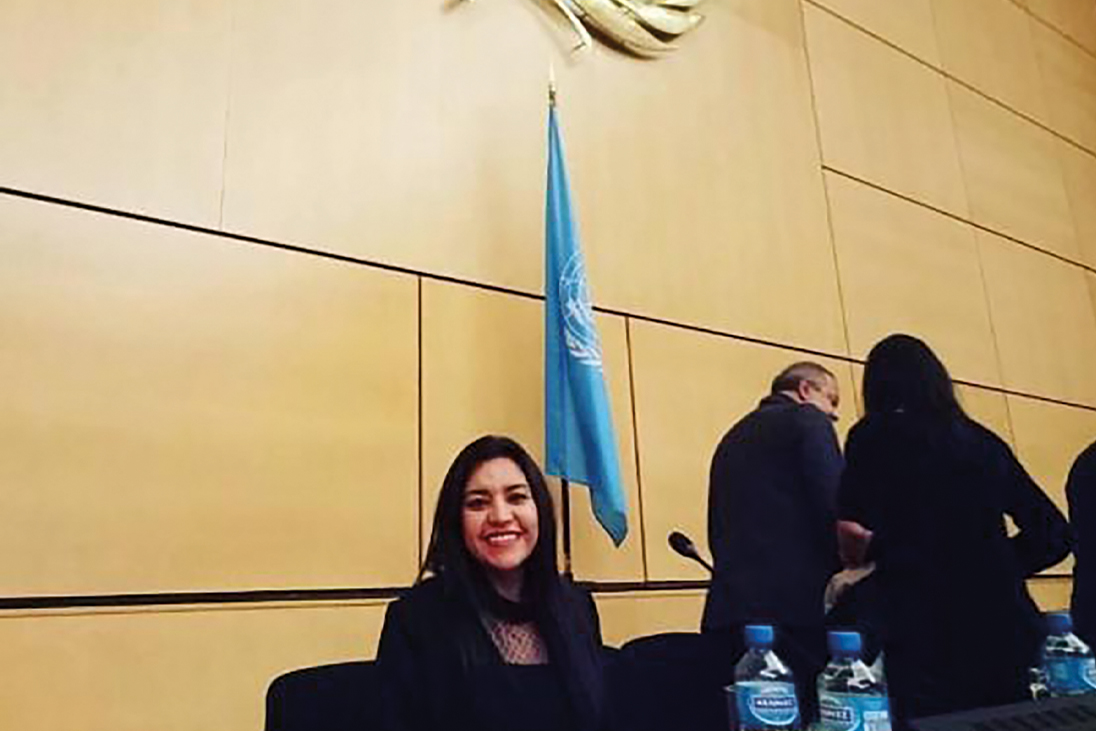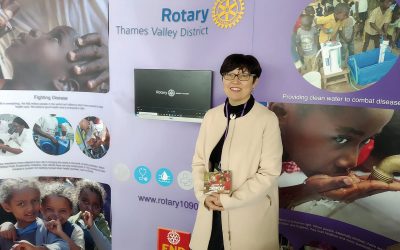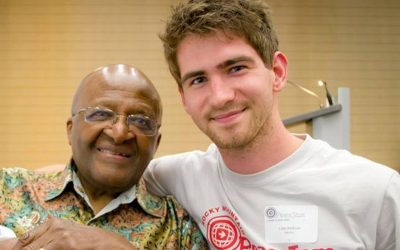Have you ever thought about what peace entails, or what peace might look like?
When thinking about peace in terms of large-scale, violent conflict, it is usually associated with ceasefire and promises contained in agreements between governments and armed insurgent groups.
Although this is probably one of the most relevant steps towards a peaceful society, many agreements tend to fail because they do not fully encompass the complexity of a conflict, which has been affecting a society for generations.
As a consequence, building peace seems like a utopia; impossible and unattainable.


Mariafernanda Burgos from Colombia is a Rotary Peace Fellow who describes her studies based at the University of Bradford.
However, there is much to learn from small-scale initiatives which challenge the complexities of the conflict.
As a Colombian, surrounded by the oldest armed conflict in Latin America, and also as a peace-builder, I have realised that these so-called utopias are possible to reach through ‘the revolution of the small things’.
Projects such as the ‘Science and Innovation for Peace and Peace Insight’ were two peace-building initiatives which I was proud to lead.
The aim was to strengthen the peace leadership skills of the youth population, as well as foster knowledgeable and new leaders in communities affected by conflict.
So, although in 2016 Colombia went through an historic peace process between the government and Fuerzas Armadas Revolucionarias de Colombia (FARC), peace is not straightforward.
Projects such as the ‘Science and Innovation for Peace and Peace Insight’ were two peace-building initiatives which I was proud to lead.”
A focus on the next generations through inter-disciplinary projects in areas such as science and arts will be small, but necessary steps in order to walk towards peace utopias.
Nowadays, as a Rotary Peace Fellow at the University of Bradford, I have confirmed that the ‘revolution of the small things’ is key when pursuing peace in protracted and untreatable conflicts.
A critical thinking, fostered by academia, has allowed me to broaden my knowledge about the nuances of peace.
It has helped me to understand that we cannot expect that a ‘one fits all’ approach to peace and reconciliation, where violence has been part of a society for decades. Being a peace-builder is not about changing the world.
It is about contributing to the world through the development of creativity and insightful tools for communities, who require different strategies to transform small scale realities.
Nowadays, as a Rotary Peace Fellow at the University of Bradford, I have confirmed that the ‘revolution of the small things’ is key when pursuing peace in protracted and untreatable conflicts.”
So, with this experience in the field, and influenced by the Peace Centre at the University of Bradford, my next steps will be oriented towards the consolidation of a global platform – one reflecting or characterised by both local and global considerations.
This is a platform where small peace initiatives around the world can shine as an example for those existing in the shaded corners, who are looking for inspiration, support and partnerships.
I want to foster globalisation as a way of moving from the local to the global.
I want to acknowledge the particular circumstances of each context.
The revolution of the small things could then transcend borders, as it walks towards the so-called utopias.


























































